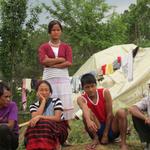Land Rights and Inclusive Development in India
<div class="event-icon"></div> <span>Save this event in my Outlook calendar</span>
<div class="event-icon"></div> <span>Save this event in my Google Calendar</span>
The Indian Constitution adopted in 1950 made special provisions for safeguarding the rights of tribal communities in the Northeastern part of the country through the inclusion of the Sixth Schedule. However, in recent times, both the motivations behind and the effectiveness of the Sixth Schedule in achieving these goals have come under intense scrutiny. In this seminar, we will focus our attention on the state of Meghalaya ("the abode of the clouds"), a tribal majority state in the North East. Despite the Sixth Schedule's stated objective of providing self governance and limited autonomy to tribal communities within the Indian Federation, and protection of the rights of the tribal peoples to their lands, the state of Meghalaya in North East India is believed to have the highest number of landless tribals in India. Why has landlessness come to plague the weakest and poorest amongst the tribal population, when laws were enacted to prevent this from happening?
Speakers:
Bengt G. Karlsson,Head, Department of Social Anthropology, Stockholm University
Dolly Kikon, Post Doctoral Fellow, Department of Social Anthropology, Stockholm University
Pritam Baruah, PhD Candidate, University College London, London
Moderator: Namita Wahi, Fellow, Centre for Policy Research, New Delhi and Doctoral Candidate, Harvard Law School

